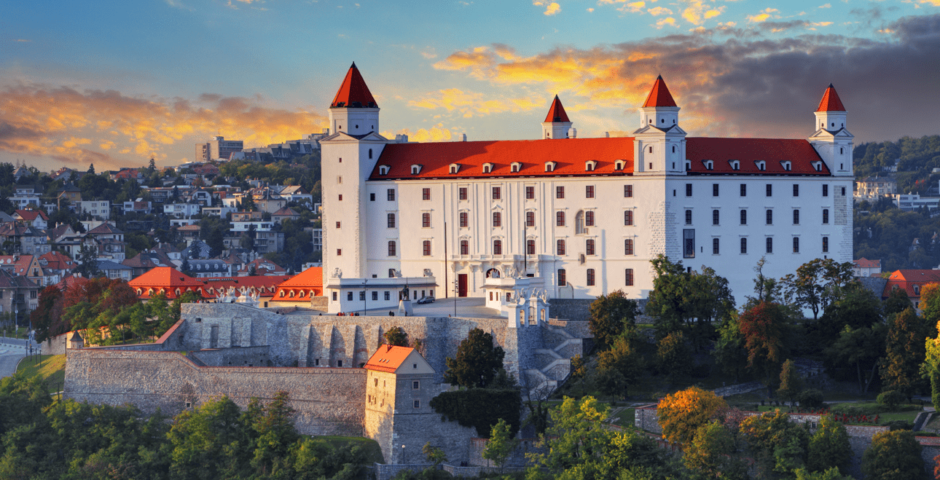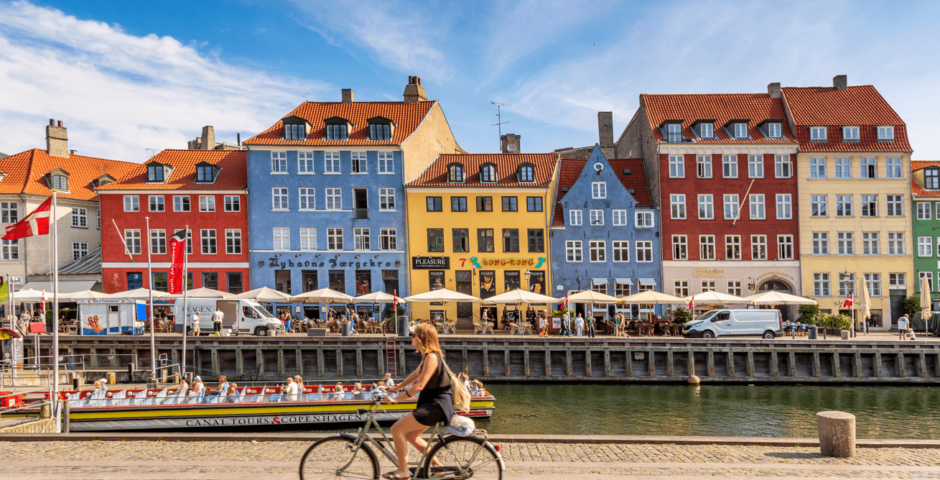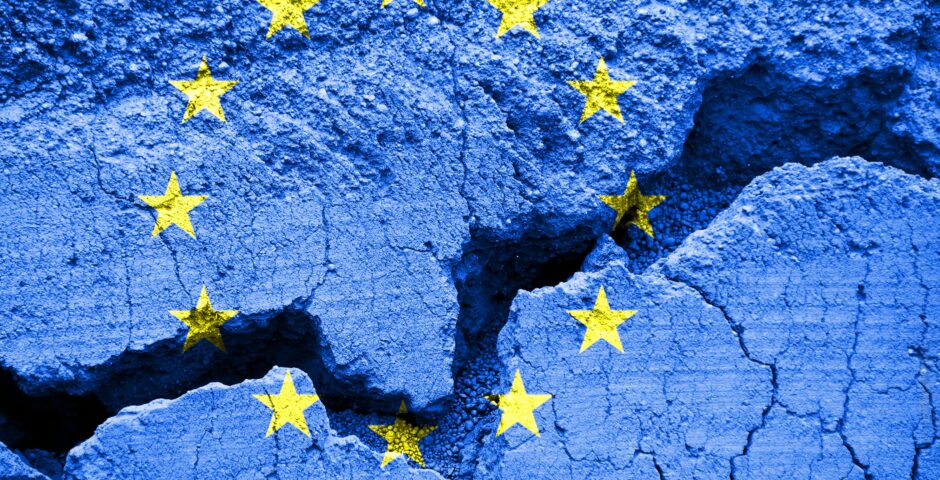EU Country Profile of Slovakia: corruption and voter turnout

Continued disinterest despite controversial changes within the country?
Welcome to the next country in Shaping Europe’s country profiles ahead of the European Parliament (EP) elections: Slovakia! This landlocked European Union (EU) member state is home to over 6000 caves and has the highest number of castles and châteaux per capita. Its capital, Bratislava, is located on the border of both Austria and Hungary. With the European Parliament elections quickly approaching, it is worth having a look at this Central European member state.
Basic facts about Slovakia
Slovakia is a country in Central Europe that is surrounded by Czechia, Austria, Hungary, Ukraine, and Poland. Slovakia is home to numerous mountains and is well known for the Tatra Mountains. Average temperatures can range from 20 degrees Celsius to -5 degrees Celsius, depending on the time of year and location within the country.
The vast majority (about 80%) of Slovakians are ethnically Slovak. Ethnic Hungarians make up about 10% of Slovakians and are, therefore, the largest ethnic minority group in the country. In 2022, about 1.2% of the population were ethnically Roma. Other notable ethnic groups in Slovakia are Germans, Poles, Ruthenians, and Czechs. Most Slovakians’ native language is Slovak, although many are also fluent in Czech as the two languages are very closely related. Slovak is used as the official language. Other languages commonly spoken in Slovakia include Hungarian, Ukrainian, Polish, Romany, German, and Rusyn.
Slovakia officially became a sovereign country on 1 January 1993 after the breakup of Czechoslovakia. It became a European Union member state during the 2004 enlargement, which was the biggest enlargement in the European Union’s history. Slovakia joined the Schengen area in 2007 and began using the euro as its currency in 2009. Slovakia’s current commissioner in the European Commission is Maroš Šefčovič. He is the executive vice president and is in charge of leading the European Commission’s work on achieving the goals of the European Green Deal.
Slovakia’s current system of government is a parliamentary democratic republic. This means that it has both a prime minister and a president. The Slovakian Prime Minister acts as the head of state and is currently Robert Fico. The President on the other hand acts as the head of the executive, but its powers are quite limited. The current Slovakian President is Zuzana Čaputová. She is both Slovakia’s first female president and the youngest to be elected for that role.
The national parliament of Slovakia is called the National Council. It is unicameral – meaning that there is only one assembly rather than two as is the case in, for example, the Netherlands. It has 150 seats. The last election for the National Council was in September 2023. The election results meant that the left-wing pro-Russian party Smer-SD came first with 23% of the votes, which translated into 42 seats. Along with this, a pro-Western party Progressive Slovakia came second with 18% of the votes, which translated into 32 seats. The government that ended up being formed was a combination of Smer-SD and two other parties: Hlas-SD and SNS.
Slovakia in the previous European Parliament election
In the 2019 European Parliament elections, Slovakia had 13 seats in the European Parliament – this has been increased to 15 seats for the 2024 Elections. As a result of the Slovak European Parliament elections, these 13 seats were split among the European Parliament groups with 4 going to the European People’s Party, 3 going to the Socialist and Democrats, 2 going to the European Conservative and Reformists, 2 going to Renew Europe, and 2 being non-attached members. Non-attached members are not part of any group within the European Parliament (you can learn more about EP political groups here).
The voter turnout in Slovakia, standing at 22.74% in the last EP elections (2019) continued the country’s trend of being well below the EU-wide average voter turnout, which was 50.66% in that same year. This was, nevertheless, an increase from the 2014 European Parliament elections where the voter turnout in Slovakia was 13.05% while the EU-wide average was 42.61%.
The results of the previous European Parliament election can be seen summarised in the table below:
| Name of Party | Number of Votes | Percentage of Votes | Seats Won |
| PS + SPOLU (Coalition) | 198,255 | 20.11% | 4 |
| Smer-SD | 154,996 | 15.72% | 3 |
| L’SNS | 118,995 | 12.07% | 2 |
| SaS | 95,588 | 9.7% | 2 |
| KDH | 94,839 | 9.62% | 2 |
| OL’aNO + NOVA (Coalition) | 51,834 | 5.26% | 1 |
| SMK-MPK | 48,929 | 4.96% | 0 |
| SNS | 40,33 | 4.09% | 0 |
| KÚ | 37,974 | 3.85% | 0 |
| Sme Rodina | 31,84 | 3.23% | 0 |
| Most–Híd | 25,562 | 2.59% | 0 |
| KDŽP | 20,374 | 2.06% | 0 |
| Other Parties | 59,14 | 6.76% | 0 |
What has happened since the previous Slovakian elections (September 2023)
Since the last election for Slovakia’s parliament and the return of Robert Fico to leadership, there have been some developments at both a national and European level.
Firstly, at a European Union level, three Slovakian members of the European Parliament were suspended from their group (the Socialists and Democrats) within the European Parliament. This was due to their affiliation with Smer-SD. This means that these three members would not be attached to any group within the European Parliament and would have to join a new group. Two of these members, Monika Beňová and Katarína Roth Neveďalová, are still listed as being non-attached members on the European Parliament’s website. The third, Robert Hajšel, has since rejoined the Socialists and Democrats group.
Secondly, since January 2024 there have been protests and condemnation of the changes that the Fico government wants to make to the Slovakian justice system regarding (mainly) corruption. The first of these changes was to close the Special Prosecutor’s Office, which is in charge of cases involving corruption and organised crime. The responsibility of these cases would be reassigned to regional prosecutors who have not had this responsibility for 20 years. This proposal has been criticised by the European Parliament, the European Commission, the European Public Prosecutor’s Office, the Slovak opposition, and even the Slovak President.
The second of these changes deals with adjustments to Slovakia’s criminal code. These changes would include lightening the punishments for crimes involving corruption and lowering the statute of limitations (how long after a crime has occurred that someone can be charged for it) for violent crimes, including child sexual abuse and rape. One of the criticisms of these changes is that the Slovak politicians who wrote the bill of proposed changes have a conflict of interest. This includes two, Tibor Gaspar and David Lindtner, who are being charged with corruption. Fico himself has, in the past, been charged with using tax data to discredit his political opponents, and was accused of supporting an organised crime group, although these charges were later dropped.
The Special Prosecutor’s Office ended up being closed, although the changes to Slovakia’s criminal code had yet to be implemented when this article was written. This is due to a temporary suspension of the changes by Slovakia’s Constitutional Court. This came after the Slovak opposition and President requested the Constitutional Court to determine if the proposed changes to the criminal code were justified within Slovakia’s constitution.
What could this mean for Slovakia’s European Parliament election results?
It is not unreasonable to predict that, despite the current issues surrounding changes to Slovakia’s criminal system, voter turnout for the 2024 EP elections will remain low. There appears to be little interest in European Union politics within Slovakia. Some view the European Union as a remote organisation which has little interest in Slovakia, others believe that Slovakia is too small to make a difference in the European Parliament.
In order to encourage greater voter participation in the European Parliament elections, this year and in the future, there will need to be a shift in how the Slovak population perceives the relationship between Slovakia and the EU. This will probably be a long process over many European Parliament election cycles. There have been efforts to increase Slovak voter turnout in the past. For example, ahead of the 2009 EP elections, Slovakia ran a campaign to encourage young people to vote. Ten years later, before the 2019 EP elections, the EU staff visited 17 cities and towns across Slovakia in a campaign that aimed to encourage Slovak voter participation. However, as evidenced by Slovakia’s consistent trend of low voter turnout in the EP elections, these efforts may not have been particularly fruitful. Regardless, any increase in the voter turnout in 2024 compared to previous years would be a positive step in encouraging more Slovakian participation within pan-European democracy.
Viktoria previously did her bachelor’s in Languages and International Relations at the University of Greenwich in London, UK. She is currently studying for a master’s in European Union Studies at Leiden University.
Image: Shutterstock




